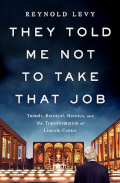|
|
|
|
|
|
|
|
|
Dear reader,
Welcome to the August 2021 edition of The Director’s Dilemma. Each month this newsletter looks at a real-life scenario that happened to a board, perhaps to a board like yours, and considers a range of responses. The scenarios are de-identified to protect the individuals concerned. This month we consider how to handle a director who acts for nominators rather than the company.
Of course, these scenarios are general, written to help you with practical information without the risks that attach to living these situations in real-life. I work with boards and directors as a confidential mentor to help them build great companies and maximise their impact. If you would like personalised service, please call me. For the month of August, I will be offering a 10% discount on all new engagements for strategy workshops, governance workshops, and director mentoring. Think of it as a new financial year gift to reward you for investing in your board capability.
To read this email in a web browser, go to www.mclellan.com.au/newsletter.html and click on 'read the latest issue'. I hope you will enjoy the latest dilemma:
 Jaron chairs a not for profit board and is increasingly worried about unity and confidentiality. Jaron chairs a not for profit board and is increasingly worried about unity and confidentiality.
One of his long-standing directors has the unwavering support of a group of long-standing company members. This director always considers the needs and wants of his cohort when making decisions. He prioritises these over ideas that are clearly in the best long-term interests of the company, such as encouraging younger members to join or supporting gender and cultural diversity strategies.
It's obvious that this director is not listening when others speak at the board meeting; he has consulted his supporters and made up his mind. He votes against proposals that make clear sense and have the support of the rest of the board. Jaron would prefer consensus decisions but can't allow this one director to halt decisions indefinitely. His board has made numerous majority decisions over the past few years.
The company members are largely unengaged and don't turn up to AGMs or vote for director elections. The troublesome director will likely continue to block constitutional reform, such as term limits for directors, to gain re-election. His cohort are often more than fifty percent of the attendance at the AGM.
There is evidence that board discussions, minutes, and papers are leaked to the troublesome director's support group. Some have talked publicly about CEO remuneration and major contract awards.
Jaron has spoken with the director and been rebuffed. His response was "I support the people who elect me, and I'm not interested in all your ideas about change".
What can Jaron do?
|
|
|
|
Keith's Answer
 This seems like it could be larger problem than simply cooperation. Is there a conflict of interest (sharing contract information for personal gain) and/or breach of privacy laws (CEO remuneration)? This seems like it could be larger problem than simply cooperation. Is there a conflict of interest (sharing contract information for personal gain) and/or breach of privacy laws (CEO remuneration)?
I would advise that the Chair take a deep dive into the organization's governance by-laws and laws governing not-for-profits in their jurisdiction. Can the board member be found guilty in violation of any of these laws or negligent in duty as a Board member? If so, what is your legal duty as Chair to the organization? Can the board member (and cohorts) be removed because of this?
If they are not guilty or negligent, I would suggest having a face-to-face meeting and asking what is their motivation in regards to the organization and for being on the board of the organization (including all members in these one on one's). Maybe by inquiring about their motivation the Chair will be able to manage this member or the cohorts to be cooperative.
Keith Labbett is the Co-Chair of the Canadian University Men's Rugby Championship and Managing Partner of Osprey Executive Search. He is based in Toronto, Ontario, Canada.
|
|
|
|
Julie's Answer

This director is not Jaron's biggest problem. The issue that gives rise to this behaviour is the lack of engagement of a wider group of company members which allows a small group to dominate the AGM and elect their chosen representative regardless of performance in the role.
Stakeholder engagement is a board role. It is not to be unthinkingly delegated to management. If members are disengaged to the point of apathy, then the board must task management with developing strategies for greater engagement and ensure that these work when implemented.
Most importantly, this board needs to get out of the boardroom and listen to members. They should try to find out what the unengaged silent majority think and feel about their organisation. They should also reach out to their dissident colleagues' support group and find out what they think and feel. Why do they support a director who votes against proposals that make sense? What is driving their support of one individual rather than the good of the organisation? The emphasis should be on understanding, not on changing their minds.
The constitution and board charter possibly have requirements that directors act in good faith and maintain confidentiality. They are impossible to enforce without goodwill. Until the board has the support of members, they will not be able to appeal to members to remove a director for breach of the requirements. Once the board has the support of the members, they will probably find that this issue has been resolved.
Julie Garland McLellan is a non-executive director and board consultant based in Sydney, Australia.
|
|
|
|
Eli's Answer
 If one individual is capable of single-handedly undermining a Board's decision-making system, it is not a very strong system. If one individual is capable of single-handedly undermining a Board's decision-making system, it is not a very strong system.
As Board Chair, Jaron must fully understand the 'rules of engagement' for Board members, ensure that every Board Member understands and follows them, and, when needed, take specific steps in defence of the decision making processes.
The Director in question is clearly breaking several significant principles and rules. He comes to meetings with his mind made up on how he'll vote on issues, based on the wishes of his constituents. He ignores the fiduciary duty to come to meetings with an open mind, ready to learn from his colleagues and from Management and hired advisors, and be fully prepared to make informed decisions. In addition, it is the duty of all Directors to keep confidentiality, or else the rights and the privacy of affected individuals may be breached, and the organization may end up paying for any related legal costs.
So, what steps should Jaron take?
First, he should abandon the notion of unanimity on decision making, or else the Board would be held hostage to the tyranny of one person. This would clearly not be democratic. Yes, it is important to hear and consider dissenting views, but there is no duty to capitulate to unreasonable views only for the sake of achieving unanimous decisions.
Second, Jaron should be more forceful and definitive with the Director in question. He should explain to him clearly what the 'rules of engagement' are and how important it is to follow them and work as a member of a team. This does not mean withholding dissenting views, but only the duty to share valid perspectives, then listen to others with an open mind, and then be fully prepared vote accordingly. He should also emphasize the damage that breaches of confidentiality inflict on trust levels, and the increased risk levels as a result of such breaches.
Third, Jaron should check the organization's governing documents, look for disciplinary measures (including the extreme measure of removal of a Director from the Board), and be prepared to apply such measures if the Director in question is clearly unprepared to follow the established rules of engagement.
Fourth, Jaron and the Board should consider the apparent apathy among company members, which leads to low attendance at the AGMs, which in turn gives the advantage to organized factions and enables them to elect an ineffective individual to the Board.
As a word of caution, Jaron and the remainder of the Board must avoid becoming automatically dismissive of potentially valid points that the Director in question may present. Notwithstanding the annoyance factor, they must still listen and weigh his input and, when it is legitimate, take it into account when they vote on specific proposals.
Eli Mina is a meeting mentor and registered parliamentarian. He is the author several books on meetings and an expert on Roberts Rules of Order. He is based in Vancouver, Canada.
|
|
|
|
Julie’s News
I spent July in lockdown along with much of the NSW population. Oh well, we do what we can to support good public health and prevent the spread of disease. Other than enjoying freedom to write and a few great zoom webinars, I have little to report.
I'm now looking forward to August and hoping to get back to work. If I can help you or your board, please reach out to me for a conversation. You can book a time with this link.
Book Review - They Told Me Not to Take that Job - Tumult, Betrayal, Heroics, and the Transformation of Lincoln Center by Reynold Levy
 Everybody has a story of 'the thing they shouldn't have done, but did'. Unlike most, this one turned out to be a success.
Everybody has a story of 'the thing they shouldn't have done, but did'. Unlike most, this one turned out to be a success.
Surely a man who has "dealt with Laurent Kabila of the Democratic Republic of Congo, Paul Kagame of Rwanda, Slobodan Milosevic of Serbia, and their followers" would find chairing a not-for-profit in the arts sector more boring than daunting? Apparently not.
This book promises a tale of tumult, betrayal, heroics and transformation. It delivers a modern-day odyssey of corporate leadership in the face of almost unsurmountable opposition.
The book is not 'arty' or moralistic. It gives the author's perspective of the transformation of a neglected and increasingly irrelevant arts precinct into a vibrant cultural centre that is poised to survive and thrive for another 75 years. Anyone who has ever encountered conservative and/or reckless directors governing organisations that are really too important to fail will share Reynold's despair at the lack of leadership and team-spirit. Anyone who has negotiated a coalition of the (mostly) willing to drive controversial progress will recognise his perseverance. And anyone who thinks a not-for-profit board is a safe place to learn the ropes whilst being applauded for your contribution should be thankful for the warning.
Understanding how this author has achieved this success will increase the chances of success for any and every director.
Available from Amazon.com.
Inspirational quote for August

Do you know where to focus for maximum impact? – boards often struggle to get cut through and drive company performance. They work hard, then they work harder, then call in a consultant who recommends some changes, then they work harder still.
If that sounds like your board, don't worry. It is likely that you have simply been focusing on the wrong stuff. I have made a diagnostic tool that might help you to prioritise the actions that will free your board from the drudgery and allow you to maximise your impact. You can take the diagnostic here:
https://directorsdilemma.scoreapp.com
Call me afterwards for help with revitalising your board.
A note on names - A few readers have asked me where I find the names for the protagonists in each case study; I 'borrow' them from people I meet or things that I read. Jaron is a Hebrew name meaning "is full of joy", "will be full of joy", or "to shout, to sing". Our protagonist will be full of joy if he manages to understand the needs of the organisation's members and then unite his board.
This newsletter - If you have any ideas for improving the newsletter please let me know. If you are reading a forwarded copy, please visit my website and sign up for your own subscription.
Suggestions for dilemmas - Thank you to all the readers who have suggested dilemmas. They are greatly appreciated. I will answer them all eventually. I could not write this newsletter without your help and without the generous help of all the experts who respond each month to the case studies.
Be a contributor - If you would like to attempt a response to the dilemmas for publication you will be most welcome. Simply reply to this email and let me know.
Let's connect - I use LinkedIn to share information about boards and directorship with my friends and acquaintances. If you use LinkedIn and we are not yet connected I will welcome a connection from you. You can find me at linkedin.com/in/juliegarlandmclellan.
Let me help you - I would be delighted to speak for or train your board, staff, audience and/or group. If I can help, please contact me at julie@mclellan.com.au.
Farewell until the next issue due 1 September 2021. I look forward to greeting you again then. In the interim I hope you will enjoy health, happiness and hard work.
Enjoy governing your companies!
Best regards,
Julie

Main Photo from Shutterstock
Quote Illustration by Keitchy Sanchez
Disclaimer:
The opinions expressed above are general in nature and are designed to help you to develop your judgement as a director. They are not a definitive legal ruling and do not constitute legal advice. Names and some circumstances in the case study have been changed to ensure anonymity. Contributors to this newsletter comment in the context of their own jurisdiction; readers should check their local laws and regulations as they may be very different.
Privacy: I am privileged to have your contact details and keep them as safely as possible. I will alert you if they are ever accessed by any unauthorised person (the technical staff at ayuda help with publishing and issuing the Director's Dilemma and have access so they can send the newsletters to you). I do not sell your details to anyone; they are kept only for the intended purpose - sending you this newsletter and helping to build the judgement of company directors by providing a safe way to consider potential responses to real life events.
|
|
|
|
|
|
|
 Jaron chairs a not for profit board and is increasingly worried about unity and confidentiality.
Jaron chairs a not for profit board and is increasingly worried about unity and confidentiality.
 This seems like it could be larger problem than simply cooperation. Is there a conflict of interest (sharing contract information for personal gain) and/or breach of privacy laws (CEO remuneration)?
This seems like it could be larger problem than simply cooperation. Is there a conflict of interest (sharing contract information for personal gain) and/or breach of privacy laws (CEO remuneration)?
 If one individual is capable of single-handedly undermining a Board's decision-making system, it is not a very strong system.
If one individual is capable of single-handedly undermining a Board's decision-making system, it is not a very strong system.

